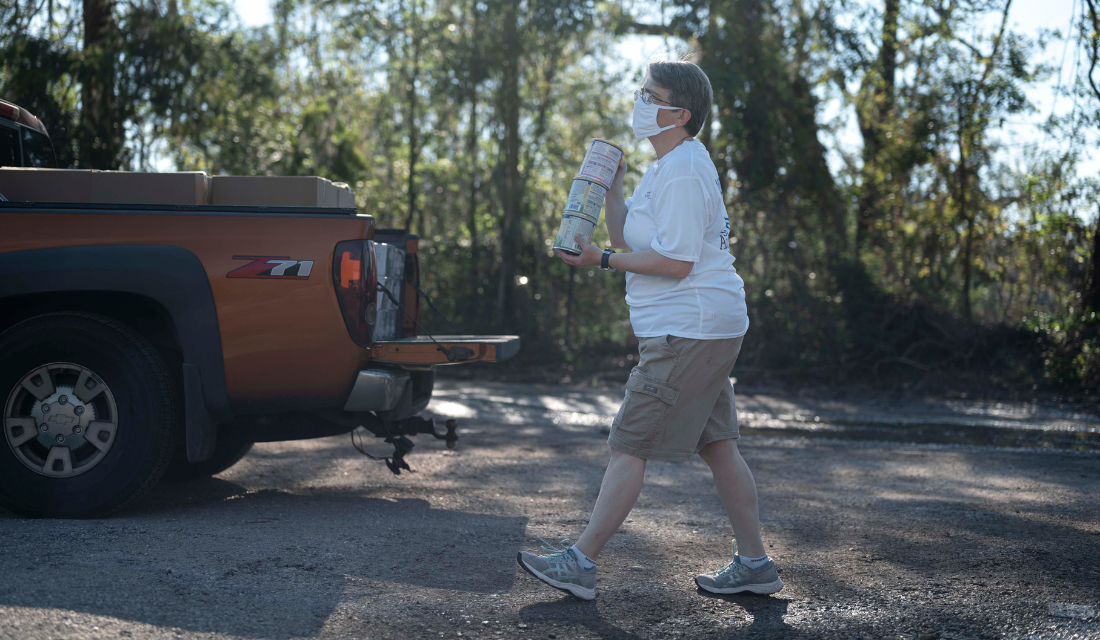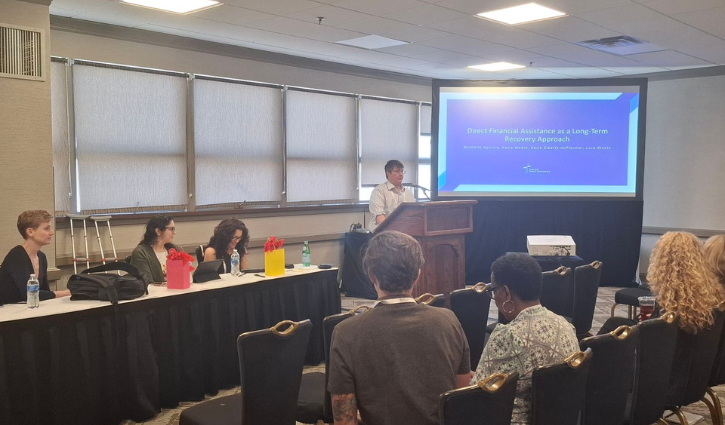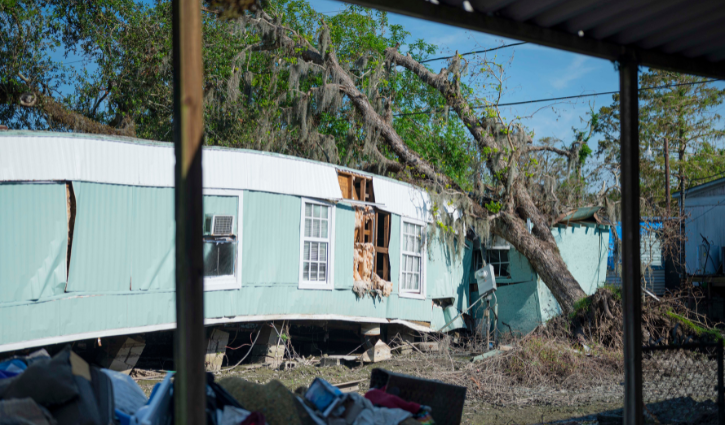Bringing Choice to the Table in Disaster Response Through Cash Assistance

Often, when a disaster strikes, churches and faith-based organizations provide goods and services like shelter, hot meals and supplies. It’s needed when there’s no power or water and local grocery stores are out of supplies or too damaged to open. However, cash-and-voucher assistance (CVA), a model that delivers direct financial support to cover costs like rent, food, transportation, medical expenses and/or temporary housing, is helping disaster survivors efficiently take control of their recovery.
In Louisiana, Episcopal Relief & Development partners with the Episcopal Diocese of Louisiana (EDOLA) to help families recover after hurricanes and floods. Through this program, the Diocese offers families cash assistance so that they can quickly cover unexpected costs and create a sense of stability.
In the global context, some major players are beginning to cut CVA funding because of perceived risks or pressure to cut their budgets. Industry-wide research however, found that CVA is effective.
At Episcopal Relief & Development, our own research has shown that CVA is worth further investment in order to advance lasting change in communities impacted by injustice, poverty, disaster and climate change. Recently, Episcopal Relief & Development program officers and monitoring, evaluation and learning (MEL) team members surveyed program participants to measure the effectiveness of our CVA program in partnership with EDOLA.
During the May National VOAD Conference, an event that gathers national and state level disaster response agencies, we shared the survey results to help encourage actors to consider this method more seriously. As part of the conference session, Karla duPlantier and Michelle Aguirre from EDOLA, along with Katie Mears and Lura Steele from Episcopal Relief & Development, shared how this model is reshaping disaster response by meeting people where they are and working with them to lead their own recovery.

Karla duPlantier and Michelle Aguirre from EDOLA, along with Katie Mears and Lura Steele from Episcopal Relief & Development present at the National VOAD Conference, May 2025.
Q: How is cash assistance impacting families in Louisiana?
Katie Mears: “We conducted a bilingual survey with families who received assistance. The numbers are really striking. Before support, only 10% said their housing was weather-tight. After receiving assistance, 70% said yes. That’s a massive jump in safety and stability.”
Lura Steele: “Another critical metric was space. Post-disaster, many families were doubled or tripled up. Immediately after the disaster, only 14% said they had enough room for their household. That number rose to 81% after they received assistance. That’s not abstract. That’s families getting out of overcrowded apartments and into dignified living conditions.”
Michelle Aguirre: “We’re not just helping people pay bills, we’re helping them restore a sense of normalcy and hope. One family had eight people in a one-bedroom apartment. The kids sat on the floor to eat. There was no space for a table. No space to just be. Now they have a little more room. That matters.”
Q: How are families using the money? What are their priorities?
Katie: “Most families used it to catch up on rent, move to a better apartment, or buy essentials—school uniforms, groceries, medical supplies. One mother told us the biggest relief wasn’t just getting caught up on rent, it was that the harassing phone calls stopped. That constant stress lifted.”
Michelle: “We also had families who used the money to evacuate to safer areas. One person bought a bus ticket to reunite with relatives who could support their recovery. Physical donations and gift cards or vouchers to specific stores doesn’t cover that. CVA does.”
Karla duPlantier: “And we didn’t just decide how to send the money. EDOLA program staff asked: ‘What’s the best way for you to receive this support?’ Families said checks. Gift cards were too limiting and often have fees associated with them and the stores were closed. Some people didn’t use apps like Zelle or Venmo. Checks were preferred.”
Q: What role does trust and dignity play in this model?
Katie: “There’s always a fear that someone might spend their money on something frivolous. The people we’re working with are paying rent, buying food, getting school supplies. We saw that 100% of our survey respondents spent their money on essential goods.”
Michelle: “People wouldn’t be asking for help if they didn’t need it. They’re honest. They’re just trying to survive. We don’t need to gatekeep dignity.”
Lura: “We asked families if they felt safe and respected during the process. 71% said yes, and that’s meaningful. We learned from the responses, too. One of the questions was misinterpreted due to how it was translated into Spanish. For us, this really highlights the need for both language access, and bicultural translation and context explanation. Language access is more than just words in a different language. We’ve since made adjustments to be clearer in future surveys.”

Learning and growing in our approach
At Episcopal Relief & Development, we believe CVA that is rooted in trusted local relationships is a reliable and effective way to engage communities with dignity and hope. As a learning organization, we continue to survey, evaluate and refine our CVA programs in Louisiana and with other partners in the US. We see the value in the approach to disaster response, and are working to improve it by including better language translation and making it even easier to distribute through digital apps.
Stay Connected
Sign up for our US Disaster newsletter to learn more about how Episcopal Relief & Development is innovating disaster relief, and how you can support programs where empowered communities recover with dignity.


